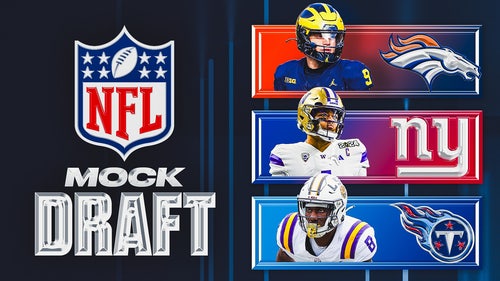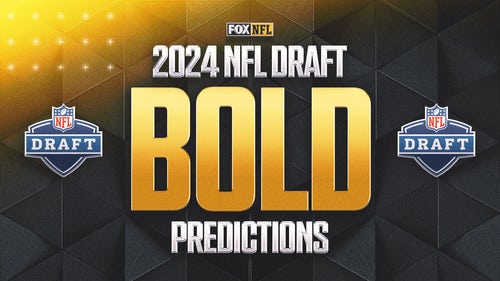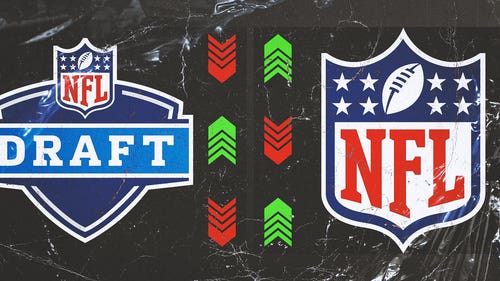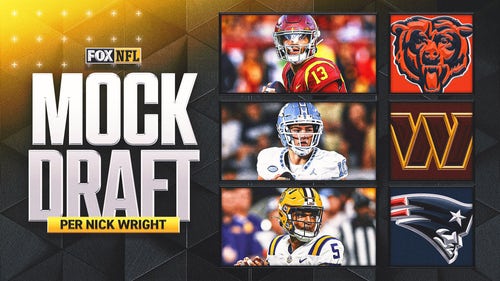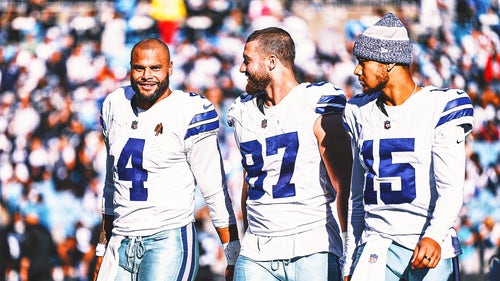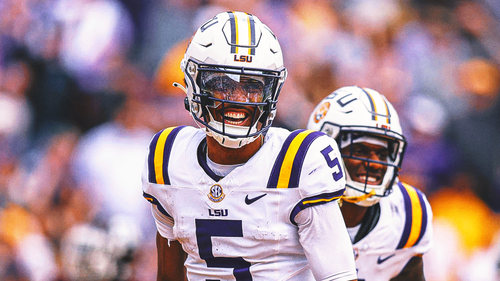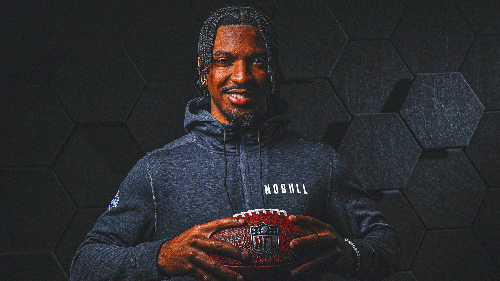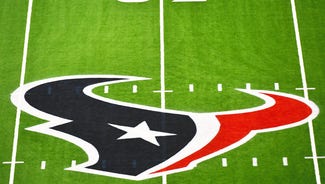
Chiefs' expected dream year falters
Every Wednesday until the Super Bowl, Brian Billick will write a weekly column looking in-depth at different aspects of the modern NFL and will discuss experiences and insights he gained while coaching and broadcasting.
The Kansas City Chiefs began the season as co-favorites in the AFC West, and some people even listed them as a dark horse for the Super Bowl. They’d beefed up their offensive line by signing the Texans’ stellar right tackle Eric Winston, brought in running back Peyton Hillis to spell Jamaal Charles, added tight end Kevin Boss to add another weapon to a young, talented receiving corps, and returned a stout defense.
GM Scott Pioli said it was clearly the most talented assemblage of players he had in his four years in Kansas City.
That all seems like a long time ago. Now they end the month of October with a 1-6 record, one of the most depressing quarterback controversies in recent memory and historic levels of futility.
They are the first NFL team since 1940 (which is so long ago, I wasn’t even born yet) to go through the first seven games of the regular season without once holding a lead in regulation. (The Chiefs did win one game, against New Orleans, but they didn’t lead until they ended the game with a field goal in overtime.)
Planes are flying over Arrowhead Stadium — once one of the most feared home fortresses in the league — urging co-owner, CEO and chairman of the board Clark Hunt to fire general manager Scott Pioli. The Chiefs’ next two games are on the road, and on national TV, at San Diego (Thursday night) and Pittsburgh (a week from Monday).
What has gone wrong, other than the obvious answer of “nearly everything”? You can point to injuries (as can most any team in football), since Hillis has been injured much of the season, and the key addition Boss has been out since early September. But every team has injuries.
The larger truth is that the Chiefs have been awful in the first quarter, awful in the red zone, and undisciplined throughout the season, with the worst turnover differential in the league (and one of the worst in the history of football at this juncture of the season). It’s still a little mind-boggling seeing a team that was vaunted for protecting the ball and playing smart football under Marty Schottenheimer and, later, Dick Vermeil, being so unsound and mistake-prone.
They turned the ball over four more times — two fumbles and two interceptions — in Sunday’s 26-16 loss to the Raiders. The mistakes came at crucial times. If it wasn’t Javier Arenas fumbling a punt to give the Raiders a short field right before halftime, it was Ryan Lilja and Matt Cassel mishandling a snap early in the second half, to dig an even deeper hole.
Head coach Romeo Crennel has seemed as bewildered as the Chiefs’ fans about what’s wrong with the team. He opened his press conference the day after the horrid loss to Tampa Bay earlier this month by saying, “I don’t know what I can tell you about yesterday other than the fact that we were disappointed in it.”
Sunday, after Charles carried the ball just five times in the loss to the Raiders, Crennel was asked why his star player had so few touches. His answer: “Now, that I’m not exactly sure either.”
He’s also getting more criticism for the disappointing performance of his defense, in light of his decision to continue as the team’s defensive coordinator even while he’s the head coach. I understand why he felt it necessary to continue doing both jobs. But the problem is that it opens you to a whole other layer of criticism.
As a head coach you are held accountable for the entire team and 16 games. As the play-caller there are an additional 1,000 or so calls that people (including your players) will begin to scrutinize if things go poorly.
Crennel is a terrific person, well-liked by his players, and one of the better defensive minds of the past generation. He did great work on the Patriots teams of the early ’00s, and instantly turned around the Chiefs defense when he took over as defensive coordinator in 2010. But, like Bill Arnsparger back in the ’70s, he may be remembered as a defensive mastermind who never quite succeeded as a head coach.
After his disappointing five-year stint in Cleveland, Crennel seemed older and wiser when he took over the Chiefs’ interim head coaching job late last season (the interim tag was taken off a short while after the season ended), emphasizing that he’d been through quarterback controversies and wanted to avoid them at all costs. Naturally, that’s what he’s gotten this year.
The flashpoint in the frustration of Chiefs fans (whom, you’ll recall, haven’t celebrated a postseason win since the 1993 postseason, when Joe Montana was quarterbacking them) has been Matt Cassel, the very composed but very limited quarterback brought over from New England to be reunited with Pioli when he came to the Chiefs in 2009. Cassel has taken a step back this year, and was the subject of fan criticism even in the offseason (he was booed by Kansas City fans at a charity softball game this past summer). Cassel was injured in the Ravens game, and then as a precautionary measure held out of the next game against Tampa Bay. He was replaced by Brady Quinn, who looked a lot like the career backup he’s become in the 38-10 shellacking by the Buccaneers.
Though Cassel was healthy going into this past week’s game, Crennel named Quinn the starting quarterback, and his reasoning may well go down in infamy.
“Probably the most impactful move I could make to get everybody’s attention was to change the quarterback,” Crennel said, going on to add, “My biggest deal was my gut in telling me that I needed to impact the team by changing the dynamic, by having a different dynamic. Brady Quinn is the guy I want to go with.”
You notice he didn’t say Quinn was a better quarterback than Cassel (because he’s not), nor did he say that Quinn gave the Chiefs a better chance to win, only that he wanted to shake things up. Could you imagine Vince Lombardi saying he was switching quarterbacks to “change the dynamic” of the team?
Or Bill Belichick feeling the need to “get everybody’s attention”? At the end of the day, this isn’t a bad football team. But it is a team that’s played a lot of bad football. And the responsibility for that falls at the head coach’s feet.
But it’s not as simple as bad coaching. Pioli, well respected during his years as an aide to Belichick in New England, has at times seemed overwhelmed by all the non-football requirements of his job as general manager.
Every aspect of the organization flows through Pioli, as it did Bill Polian in Indianapolis. And this is a double-edged sword as well: when you win, people say you have a firm grip on the organization; when you lose, they say it’s a stranglehold, and that you’re a micromanaging tyrant.
Pioli’s made some good moves. At the same time, if you look at the Chiefs’ roster today, you have to conclude that most of the team’s dynamic difference-makers — Charles, Dwayne Bowe and Branden Albert on offense, Derrick Johnson, Tamba Hali and Brandon Flowers on defense — were acquired during the last years of Carl Peterson’s tenure, before Pioli arrived.
So what should happen, and who should go? Start with this: The franchise is in its 53rd season, and it’s never drafted and developed its own Pro Bowl-caliber quarterback (Hall of Famer Len Dawson spent five years in the NFL before coming to the franchise; Trent Green bounced around Washington and St. Louis before coming to KC). That’s priority No. 1.
The difficulty for the Chiefs in a nutshell is this: both Crennel and Pioli are really good at what they do. But at this point it does not matter. Unless this magically turns around and they can re-establish their credentials with the owner, the city, the organization, and with each other, the end of the season will bring about the inevitable change for change’s sake. Sometimes a marriage does not blow up, or turn contentious. Sometimes it just simply ceases to be a marriage.






































































































































